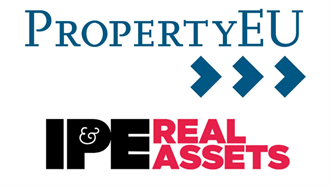The property arm of Italian insurer Generali is to increase the size of its European senior debt fund to €1.5 bn, while preparing the launch of a second vehicle targeting equity commitments of €500 mln, PropertyEU can reveal.
Generali is currently in the process of raising a further €500 mln of equity for GREDIF (Generali Real Estate Debt Investment Fund), the group’s first European real estate senior debt fund which was first launched in May 2019 with just over €1 bn of equity commitments. The move comes as more and more third-party investors are showing interest in the vehicle, according to Nunzio Laurenziello, Generali’s head of real estate debt.
‘The first €1 bn of commitments for GREDIF was raised exclusively from insurance companies within the Generali Group. Only recently the fund has opened up for investment by third parties and equity raising is going extremely well,’ he said in an interview.
The fund is currently 70% invested, with loans secured by properties across all asset classes including a majority of offices (50-60%). Most of the investments (€500 mln) have been made following the pandemic.
‘Since the Covid outbreak, traditional lenders have been reducing their exposure to commercial real estate debt and this has opened up deal opportunities for us, alternative financiers, operating in a much less crowded market,’ Laurenziello noted.
Second debt fund
Following the strong market success of its real estate debt investment vehicle, Generali is preparing the launch of a second European real estate debt fund targeting equity commitments of €500 mln, he added. ‘We expect that the new debt fund in particular will be mostly invested by third-parties, marking a major difference between fund I and fund II.’
With ESG compliance already at the centre of the GREDIF investment strategy, the closed-end vehicle soon to be launched will have an even stronger ESG commitment, focusing exclusively on investments with high environmental credentials, Laurenziello added. The vehicle is planned to be formally launched in the second quarter of the year and is expected to draw equity commitments from medium-sized insurance companies in Germany, France and Italy, as well as from pension funds with a strong exposure to real estate, which are looking to invest in real estate-backed private debt.
Said Laurenziello: ‘With both a real estate and a private debt team in place, we have the advantage of being able to assess every single investment from both the real estate point of view of the underlying asset as well as the creditworthiness of the debt.’
Like the current fund, the new debt vehicle will invest in first mortgages - senior loans with five to seven year maturities with returns of 2.5% on average - secured against real estate assets across all segments with a core, core plus and value add profile. And building on the traction in this investment strategy, the new fund will invest in Europe’s core countries of Italy, France, Germany, Spain, the Netherlands, as well as the UK, Ireland and Central & Eastern Europe. In terms of asset classes, it will shun no segment including assets in the struggling hotel and retail sectors.
‘We are open to projects in these segments in terms of capex, redevelopments and conversions but we have become more selective compared to the past,’ Laurenziello said. ‘Also, as financiers it is worth saying that we can only be active in sectors where transactions are actually taking place so in this sense we have to follow investment activity and what is happening in the market.’
He continued: ‘We are definitely interested in the two winning sectors of the pandemic, logistics and residential. Logistics in particular will continue to dominate in 2021 and the sector is dominated by a few big names. As we aim to build up a diversified portfolio both in terms of asset classes but also sponsors, we will be active in this segment but - contrary to what is currently happening in the market - our activity will not be dominated by this sector. We continue to believe in offices, particularly core assets in city centre locations and with long-term rental agreements.’
Higher LTV
While Generali’s first debt fund targeted a loan to value of maximum 60%, the group is evaluating the opportunity to slightly increase the LTV threshold with fund II. ‘This is not because LTVs are getting any higher in general across Europe, in fact the market is getting more and more cautious in terms of leverage,’ he explained.
Before the pandemic, there was an emergence of covenant-light structures but these have in fact disappeared following the Covid outbreak. Laurenziello: ‘Our willingness to increase the LTV threshold is more linked to being able to grab single market opportunities where a higher LTV offering might provide a competitive advantage. This would allow us to compete with whole loan funds and capture deal opportunities typically available only to funds with higher leverage.’






























